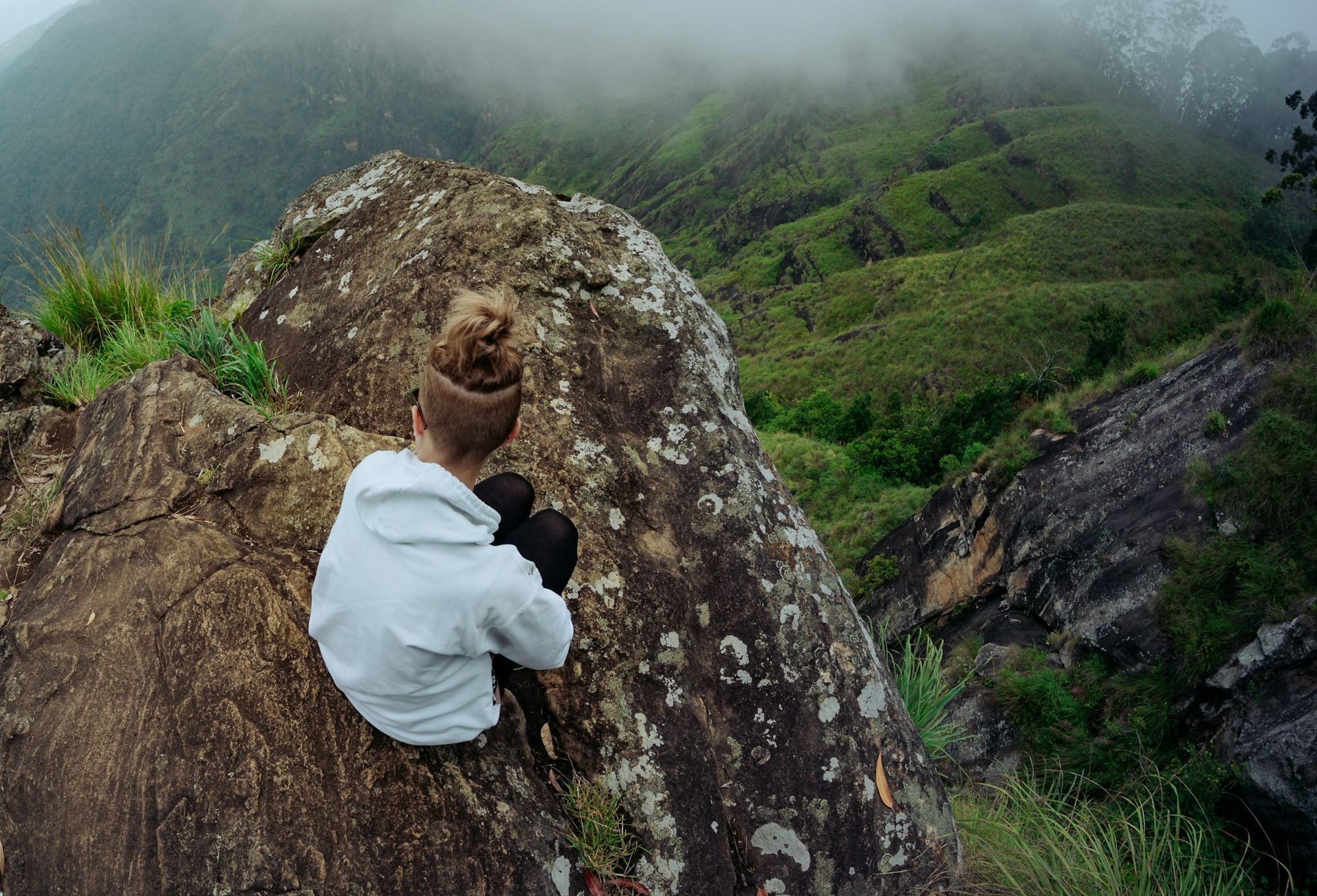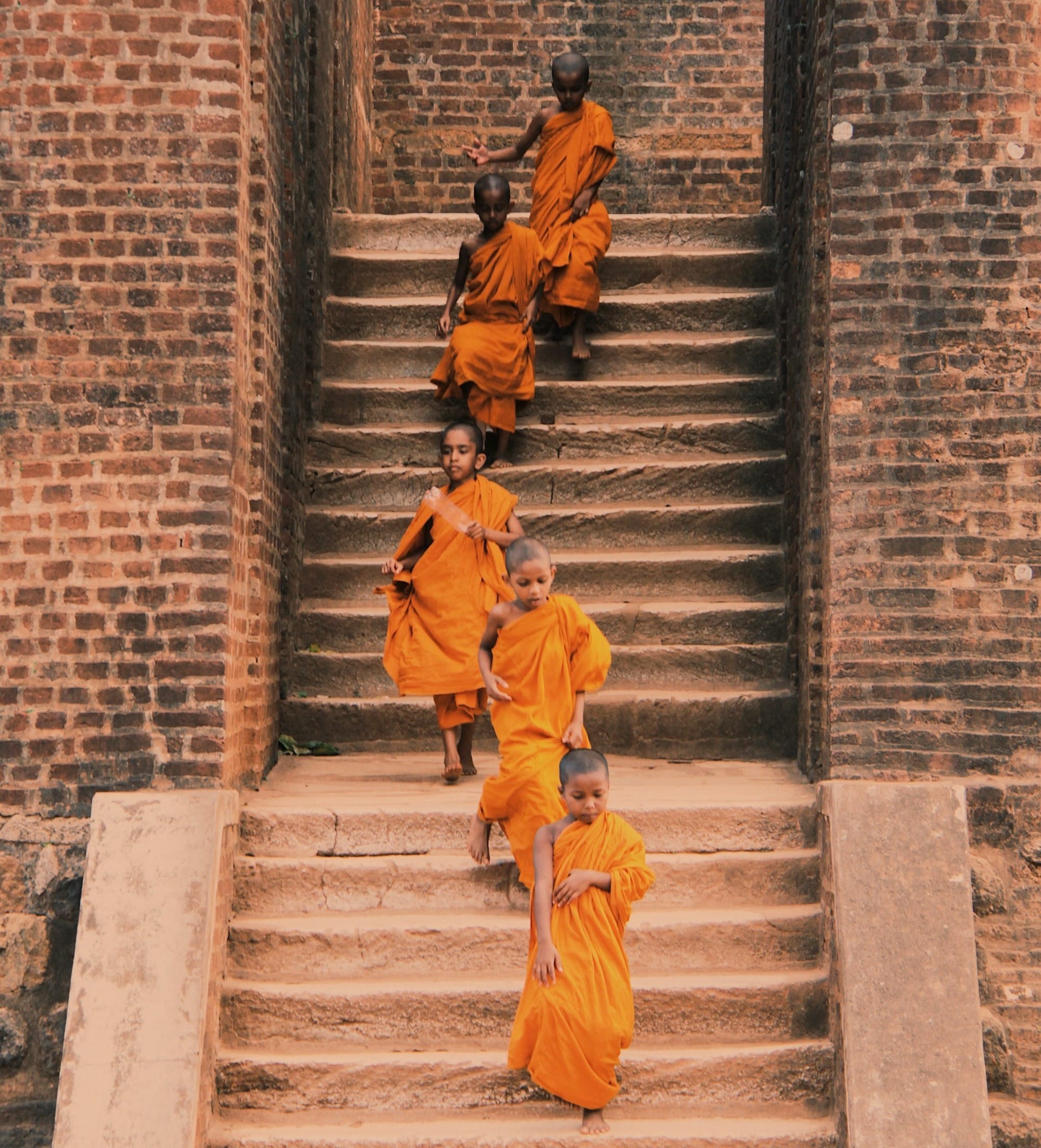14 Things You Need to Know Before Going to Sri Lanka

Floating in the warm, tropical waters of the Indian Ocean, just off the southern tip of India, Sri Lanka is an island defined by its friendly people, rich Buddhist culture, and incredibly diverse landscapes. From stunning, surf-pounded coastlines to lush tea plantations, jungle-covered highlands, and ancient temples, this small island packs a big punch.
Before you dive into Sri Lanka's wonders, a little preparation can go a long way. To help you make the most of your trip, here are 14 essential tips that will guide you through visas, cultural norms, safety precautions, and more.
Apply for a Visa in Advance
Before jetting off to Sri Lanka, make sure to sort out your Electronic Travel Authorization (ETA) online. Most nationalities need this visa before arriving, but don’t worry, it’s a simple process. Fill out the application, pay the fee, and in a few days, your visa should be ready. Having your visa sorted beforehand means you’ll breeze through the airport and avoid unnecessary delays.
Check Your Vaccinations
Sri Lanka’s tropical climate means you’ll want to check your vaccinations with your doctor before your trip. Recommended vaccines typically include hepatitis A and B, tetanus, diphtheria, and polio. If you're planning a longer stay or venturing into more remote areas, consider typhoid and rabies vaccines as well. Don’t forget to bring along some strong mosquito repellent, while malaria isn’t a concern, dengue fever can be an issue, especially in the rainy season.
Plan Around the Monsoons
Sri Lanka’s weather can be a little tricky thanks to its two monsoon seasons. From May to September, the southwest monsoon hits the south and west coasts, while the northeast monsoon affects the north and east from November to March. If you're heading for the beaches, plan accordingly to avoid heavy rains. But if you don’t mind a bit of wet weather, traveling in the off-season can be rewarding, think fewer crowds, lower prices, and a quieter, more relaxed experience.

Respect Full Moon Days and Religious Festivals
Sri Lanka celebrates poya days, which are full moon holidays observed every month. During these days, alcohol is not sold in public places like bars, shops, or restaurants. Hotels may still serve it in private minibars, but plan ahead if you’re hoping for a drink. Respect the local customs, especially during major religious events like Vesak in May, which is a beautiful time to visit and witness the island’s deep Buddhist traditions.
Carry Cash – The Currency is the Sri Lankan Rupee
The Sri Lankan Rupee is the local currency, and while ATMs are common in cities, you’ll need cash for local markets, tuk-tuk rides, and smaller transactions. The Bank of Ceylon ATMs are usually the most reliable and don’t charge extra fees. Keep small bills on hand, as breaking larger notes can be tricky in rural areas. If you have any dollars, euros, or pounds, they’re widely accepted in tourist areas and can be exchanged easily upon arrival.
Don’t Try to Cover Too Much Ground
Although Sri Lanka is a relatively small country, its roads are winding, and the terrain is diverse, which can make travel slow. The Hill Country, with its dramatic mountains and tea plantations, is especially tricky to navigate. Don’t rush, take your time, enjoy the landscapes, and expect delays. Consider traveling by train for a more scenic and relaxed way to cover longer distances. A month is ideal if you want to explore all the island has to offer, but even in a shorter trip, taking things slow will help you savor each moment.
Pack for the Tropics and the Highlands
Packing for Sri Lanka’s varied climate requires a bit of strategy. Bring lightweight, breathable clothing for the hot lowlands and beaches, but don’t forget a light sweater or jumper for the cooler highlands. A sarong is your best travel companion, it’s perfect for covering up at temples, as well as doubling as a beach blanket or extra layer when needed. Comfortable walking shoes are also a must, especially if you plan to hike in the Hill Country or explore ancient ruins.

Book Train Tickets in Advance
If you’re dreaming of the scenic train journey through Sri Lanka’s Hill Country, especially the route from Kandy to Ella, make sure to book your tickets in advance. Tickets go on sale 10 days before departure and can sell out quickly, especially in first and second class. If you miss out, don’t worry, third class is an adventure in itself, often more lively and full of locals.
Swimwear is for the Beach, Not the Streets
Sri Lanka is conservative when it comes to dress, so while swimwear is fine for the beach, it’s not appropriate in towns or public spaces. Leave bikinis and swim trunks for the sand, and when you’re out and about, wear light, modest clothing that covers your shoulders and knees. It’s a great way to show respect for local culture, and you’ll blend in more comfortably.
Be Mindful When Visiting Temples
Temples in Sri Lanka are not just tourist attractions; they’re deeply sacred places. Always cover your shoulders, upper arms, and knees, and remove your shoes before entering. In Hindu temples in the north, like those in Jaffna, men may even be required to remove their shirts as a sign of respect. Keep a sarong or shawl handy, and remember that showing respect for the local customs goes a long way.
Respect Buddha Statues and Symbols
Sri Lanka takes its depictions of Buddha seriously. Avoid wearing clothing with Buddha images and, if you have a Buddha tattoo, keep it covered. It’s also considered disrespectful to take selfies with Buddha statues or to turn your back on them. Follow these guidelines, and you’ll not only avoid offending locals but also deepen your appreciation for Sri Lanka’s Buddhist heritage.

Stay Alert for Scams and Pickpockets
Like in any popular tourist destination, it’s important to stay aware of your surroundings. Common scams include overpriced gemstones and "special deals" that seem too good to be true. Always insist on using the meter in tuk-tuks, and keep an eye on your belongings in crowded areas like Colombo, Kandy, and Galle Fort. Stick to reputable service providers for tours and excursions, and ask locals or your hotel staff for recommendations to avoid being scammed.
Protect Yourself from Mosquitoes
Even though malaria has been eradicated in Sri Lanka, dengue fever is still a concern, especially during the rainy season. Wear insect repellent, especially during dawn and dusk, and cover up with long sleeves when possible. Use mosquito nets if they’re provided, and stay aware of any early symptoms like fever, headaches, or joint pain.
Be Cautious in the Ocean
Sri Lanka’s beaches are stunning, but the ocean can be dangerous. Strong currents, particularly during the monsoon seasons, can catch even experienced swimmers off guard. Always ask locals or lifeguards about conditions before swimming and be cautious in unfamiliar areas. Enjoy the beaches, but remember that the ocean’s power deserves respect.
Sri Lanka is a destination that’s as welcoming as it is diverse. With its unique blend of landscapes, cultures, and traditions, it’s a country that promises adventure and tranquility in equal measure. By keeping these 14 essential tips in mind, you’ll not only navigate Sri Lanka smoothly but also gain a deeper appreciation for the rich experiences it has to offer.
Embrace the slow pace, respect local customs, and take the time to explore everything from its sun-soaked beaches to its misty mountain peaks. Whether you’re a history buff, a nature lover, or a foodie, Sri Lanka is sure to captivate you. Safe travels, and enjoy every moment!

